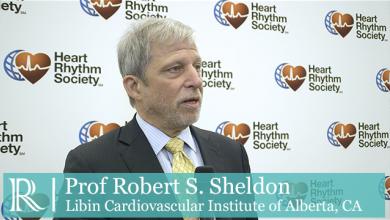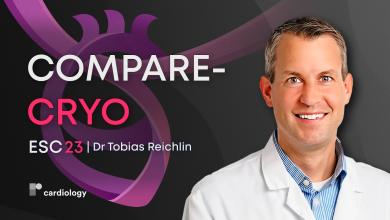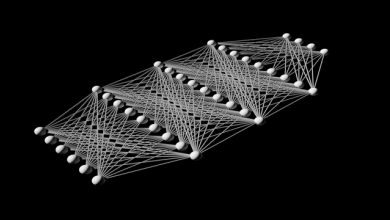Search results
Author(s):
Robert Sheldon
Added:
5 years ago
ProfessorRobert S. Sheldon discusses arandomized pragmatic trial of strategies of permanent pacemaker versus implantable cardiac monitor in older patients with syncope and bifascicular block.
Filmed by Radcliffe Cardiology on-site at HRS 2018 in Boston, US.
View more
Author(s):
Tobias Reichlin
Added:
7 months ago
ESC 2023 — Dr Tobias Reichlin (Inselspital, University of Bern, CH) joins us on-site at ESC 2023 to discuss the findings of the COMPARE-CRYO Trial (NCT04704986).
The COMPARE-CRYO trial (Insel Gruppe AG, University Hospital Bern) aimed to compare the safety and efficacy of the PolarX Cryoballoon (Boston Scientific) with the Arctic Front Cryoballoon (Medtronic) in patients with symptomatic…
View more
CIRCA-DOSE in Context
Author(s):
Jason G Andrade
,
Atul Verma
,
Laurent Macle
,
et al
Added:
3 years ago
Article
Author(s):
Thorsten Lewalter
,
Giuseppe Boriani
Added:
3 years ago
The monitoring of atrial fibrillation (AF) can be performed using a great variety of strategies and tools. Strategies range from monitoring only symptomatic AF (e.g., post-catheter ablation with or without surface electrocardiogram [ECG] documentation) to continuously monitoring heart rhythm using implantable pacemakers, implantable cardioverter defibrillators (ICDs) or subcutaneous implantable…
View more
Author(s):
Alessio Galli
,
Francesco Ambrosini
,
Federico Lombardi
Added:
3 years ago
Since the 1960s, Holter monitoring has been a cornerstone for diagnosing suspected arrhythmias in patients of all ages.1 The most common monitoring systems allow the continuous registration of three or more leads for 24–48 hours; newer Holter monitors allow continuous electrocardiogram (ECG) registration for 2 weeks.1 Extending the time of ECG registration will increase the diagnostic yield of…
View more
Author(s):
A John Camm
Added:
3 years ago
Atrial fibrillation (AF) is the most common sustained cardiac arrhythmia, occurring in 1–2 % of the general population and is increasingly prevalent in older people, occurring in about 10 % of over 80 year olds.1 AF is associated with a variety of cardiovascular conditions. The arrhythmia is associated with a five-fold rise in stroke risk and frequently coexists with heart failure, both leading…
View more
Author(s):
Konstantinos D Rizas
,
Wolfgang Hamm
,
Stefan Kääb
,
et al
Added:
3 years ago
Experimental and clinical studies have demonstrated that enhanced sympathetic autonomic nervous system (SANS) activity can destabilise myocardial repolarisation,1–4 increasing vulnerability to developing fatal cardiac arrhythmias.5–8 Accordingly, assessment of SANS activity has always been a major goal for cardiac risk stratification methods. Various non-invasive methods including assessment of…
View more
Author(s):
Rahul G Muthalaly
,
Robert M Evans
Added:
3 years ago
Artificial intelligence (AI) has recently become a popular term in the technological world. AI refers to the simulation of human intelligence with the capacity for achieving goals within computers. Machine learning (ML) – a subtype of AI – refers to a statistical model that is able to independently learn to make inferences on new data based on data it has previously analysed. ML has markedly…
View more
Author(s):
Justine Bhar-Amato
,
William Davies
,
Sharad Agarwal
Added:
3 years ago
Ventricular tachyarrhythmias (VAs) most commonly occur early in ischaemia, and patients presenting with an acute MI and ventricular arrhythmias are a group that has a significantly increased risk of mortality.1,2 Thrombolysis primary percutaneous coronary intervention (PCI) and use of beta-blockers, while resulting in the modification of the natural history of an infarct, have also reduced the…
View more
Author(s):
Shane E Loeffler
,
Natalia A Trayanova
Added:
1 year ago















